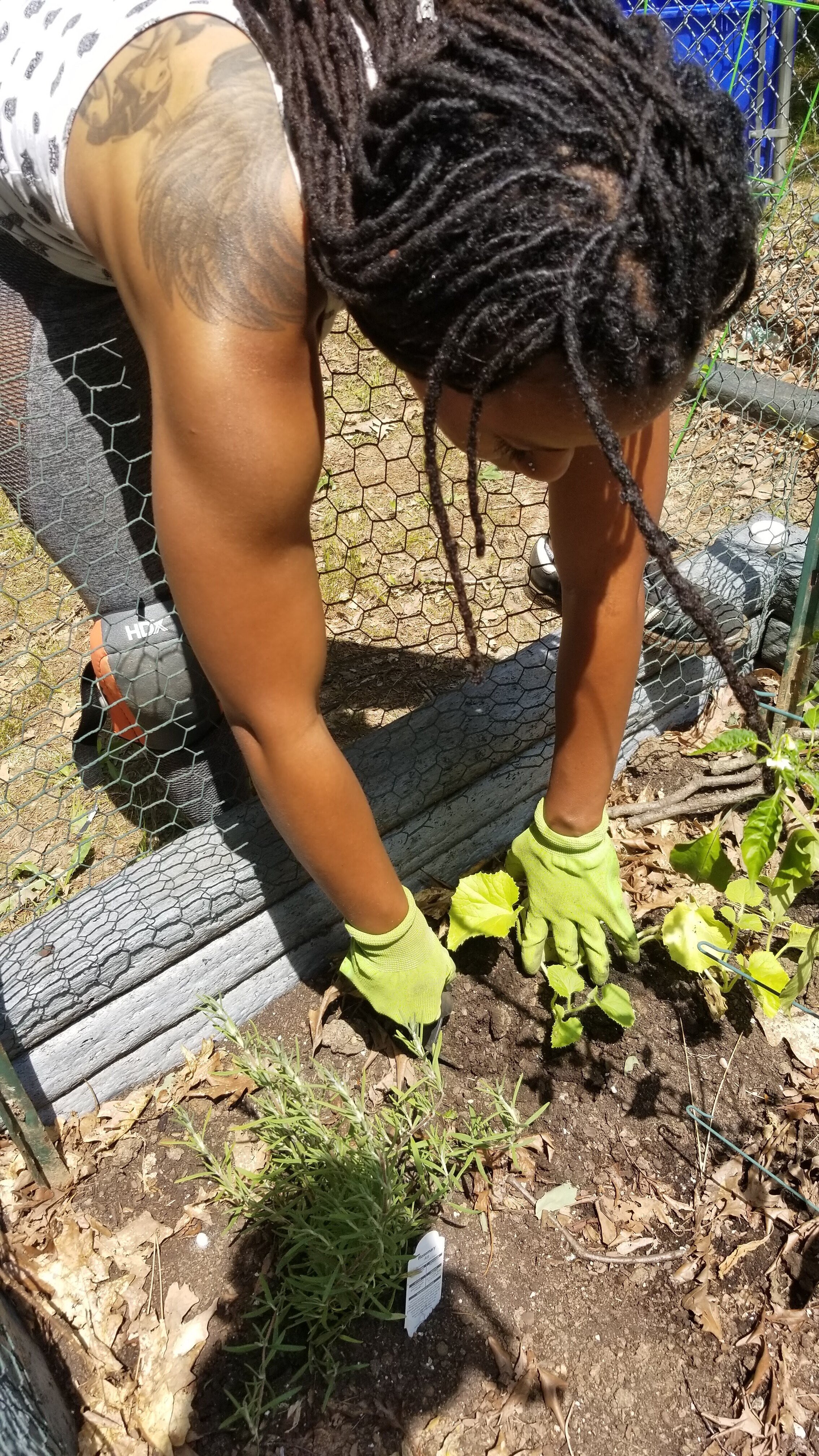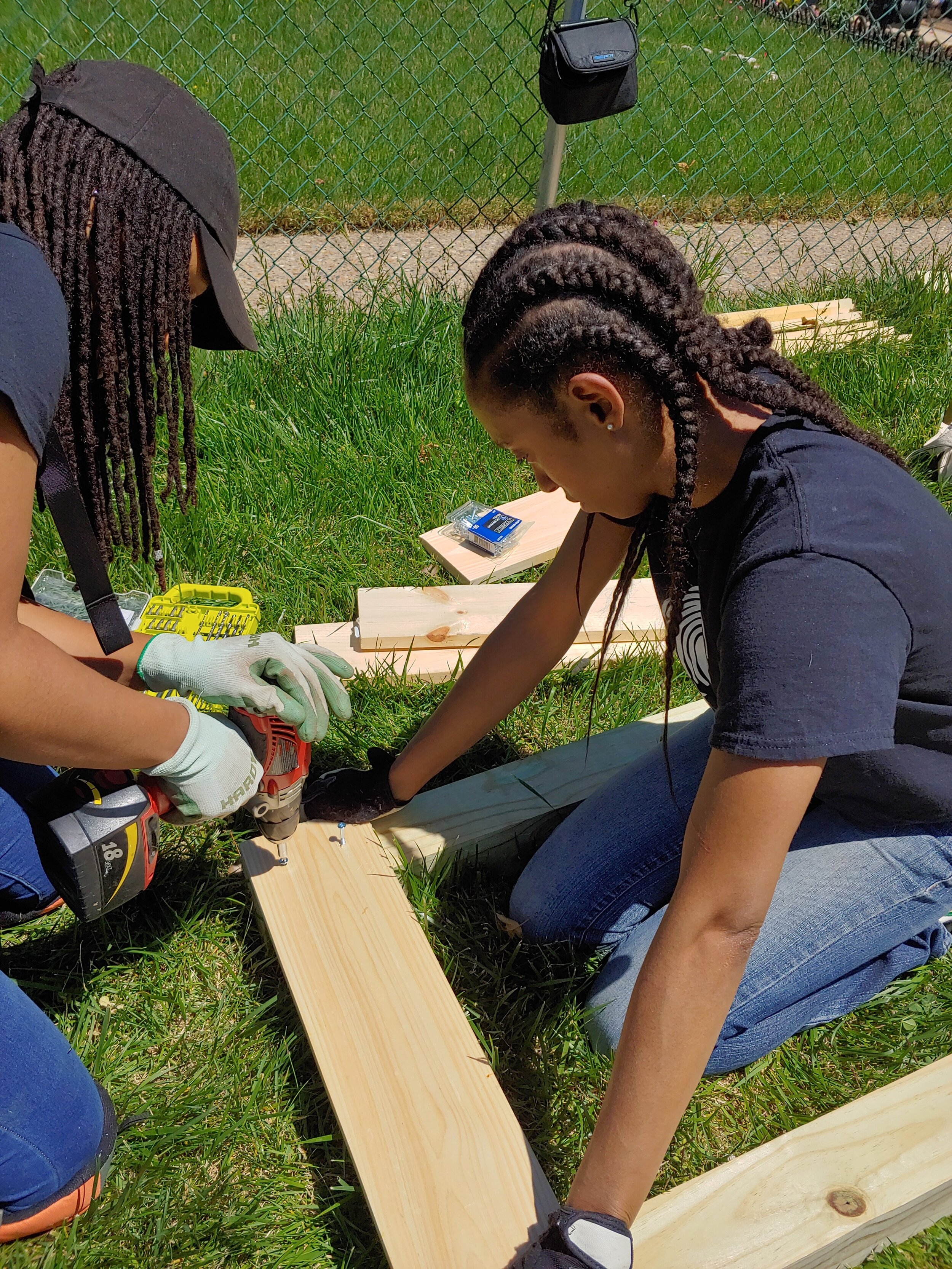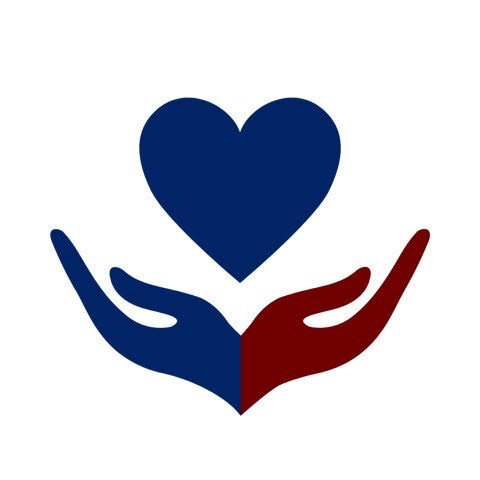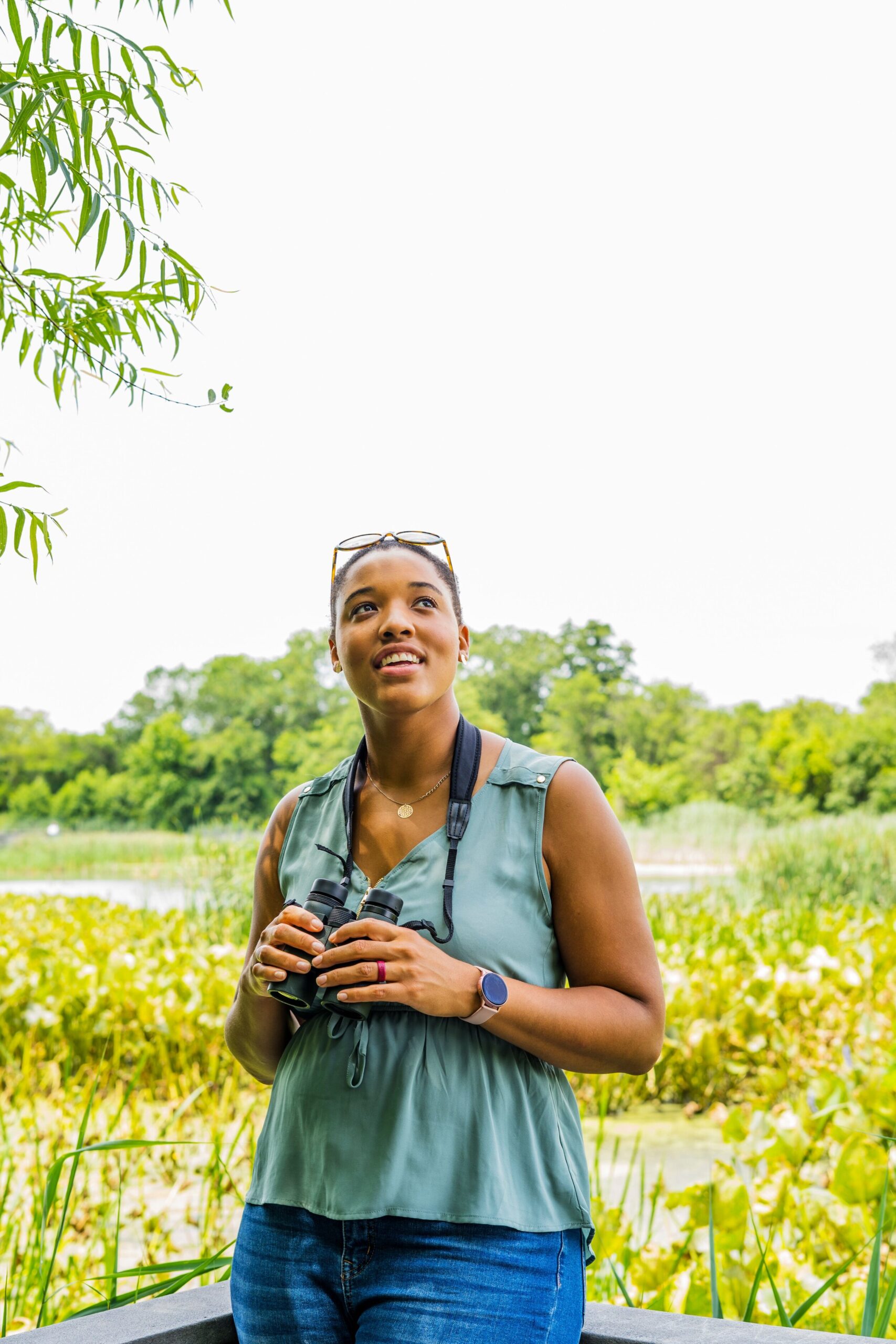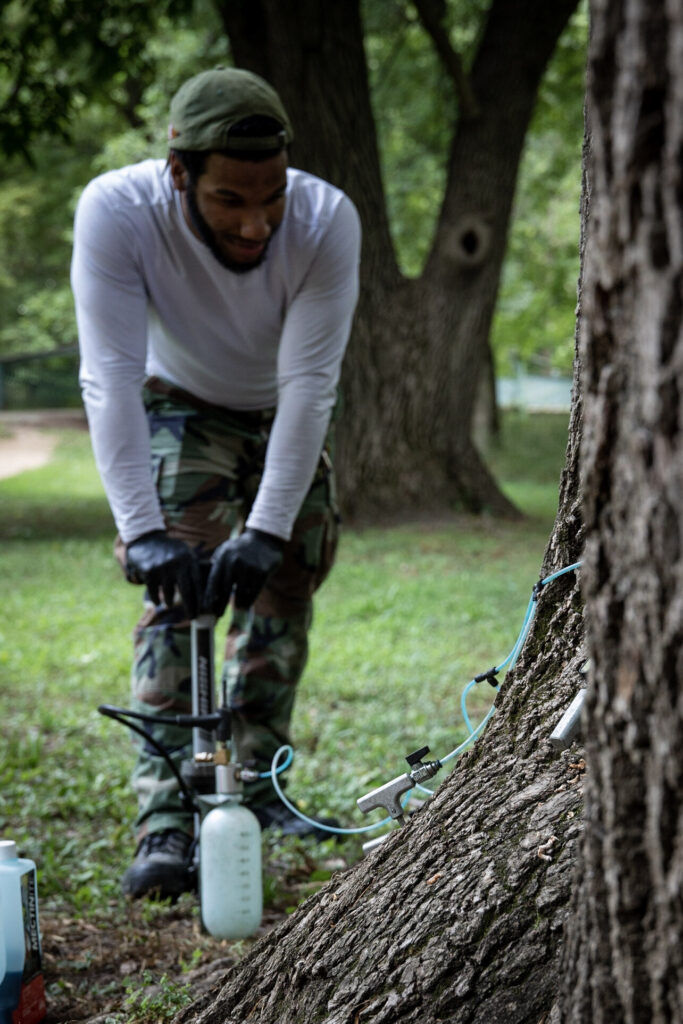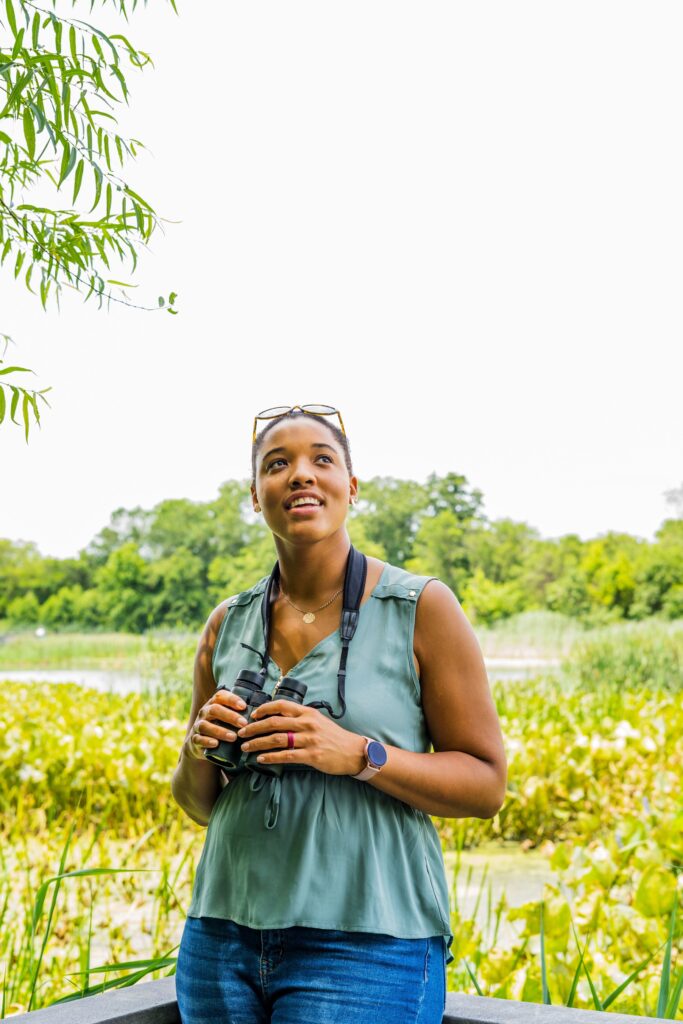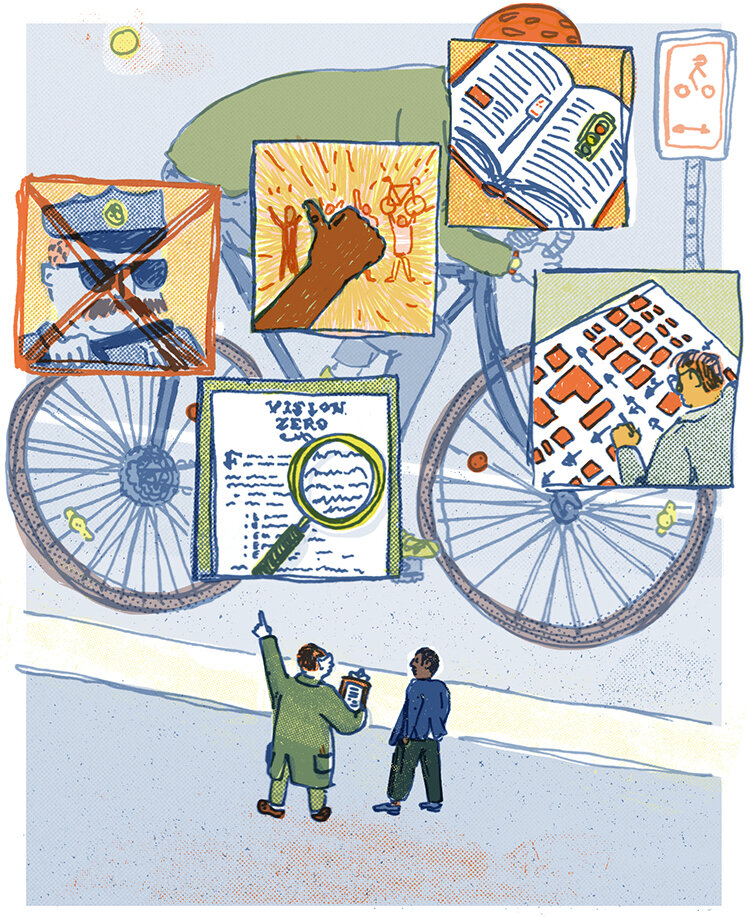Gardening quickly grew from a hobby to a passion for Pamia Coleman and Latiaynna Tabb. The friends founded the organization Black Girls With Green Thumbs (BGWGT) in 2016 after they’d spent a few years sharing their daily victories and obstacles with urban gardening via a joint Instagram account.
The community-based organization focuses on education and tools for urban gardening, food sovereignty and plant-based cooking, particularly in Black and Brown communities in Philadelphia.
“We’re trying to essentially increase the health literacy of people in our community,” explains Tabb, “specifically of people who look like us.”
Tabb herself has been growing food her whole life.
“I’ve always had gardeners around me,” says Tabb. Her grandparents ran a halfway house in Montgomery County, and her family would share the food they harvested from their garden with members of the house.
While in college, Tabb worked at an overnight summer camp in Downingtown that prioritized connecting children to the wonders of outdoors. There she learned how disconnected both children and adults are from the environment.
In the spring of 2019, Coleman began working with Global Leadership Academy charter schools through Get Fresh Daily, a plant-centric social enterprise that manages the after-school programs and gardens at two charter schools in West Philly. Through this experience, she was introduced to Greener Partners, a nonprofit organization that connects Philly communities to healthy food, and they decided to partner with BGWGT.
During school and summer sessions at the charter school, BGWGT used garden boxes to introduce children from kindergarten through 8th grade to soil testing, planting, harvesting and cooking with the food that they grow.
“It’s been really amazing,” says Coleman. “A lot of these kids never understood the connection between the food that they eat and where it actually comes from.”
BGWGT has been able to illustrate a garden-to-table mentality with the students, as they’ve introduced them to cooking with the vegetables grown. Some recipes they’ve tried with the students include chana masala, hummus, fresh juices and smoothies, collard greens, ratatouille and Indian cabbage.
“We’ve always made sure that we implement our programming in high-need areas,” says Coleman. Though she says she can’t think of too many parts of Philadelphia that don’t need programming like theirs, especially when it comes to school-aged children.
“The kids are always so excited about it because they actually planted these plants, and now they’re cooking with them,” she says.
The group has also been teaching classes throughout Philadelphia.
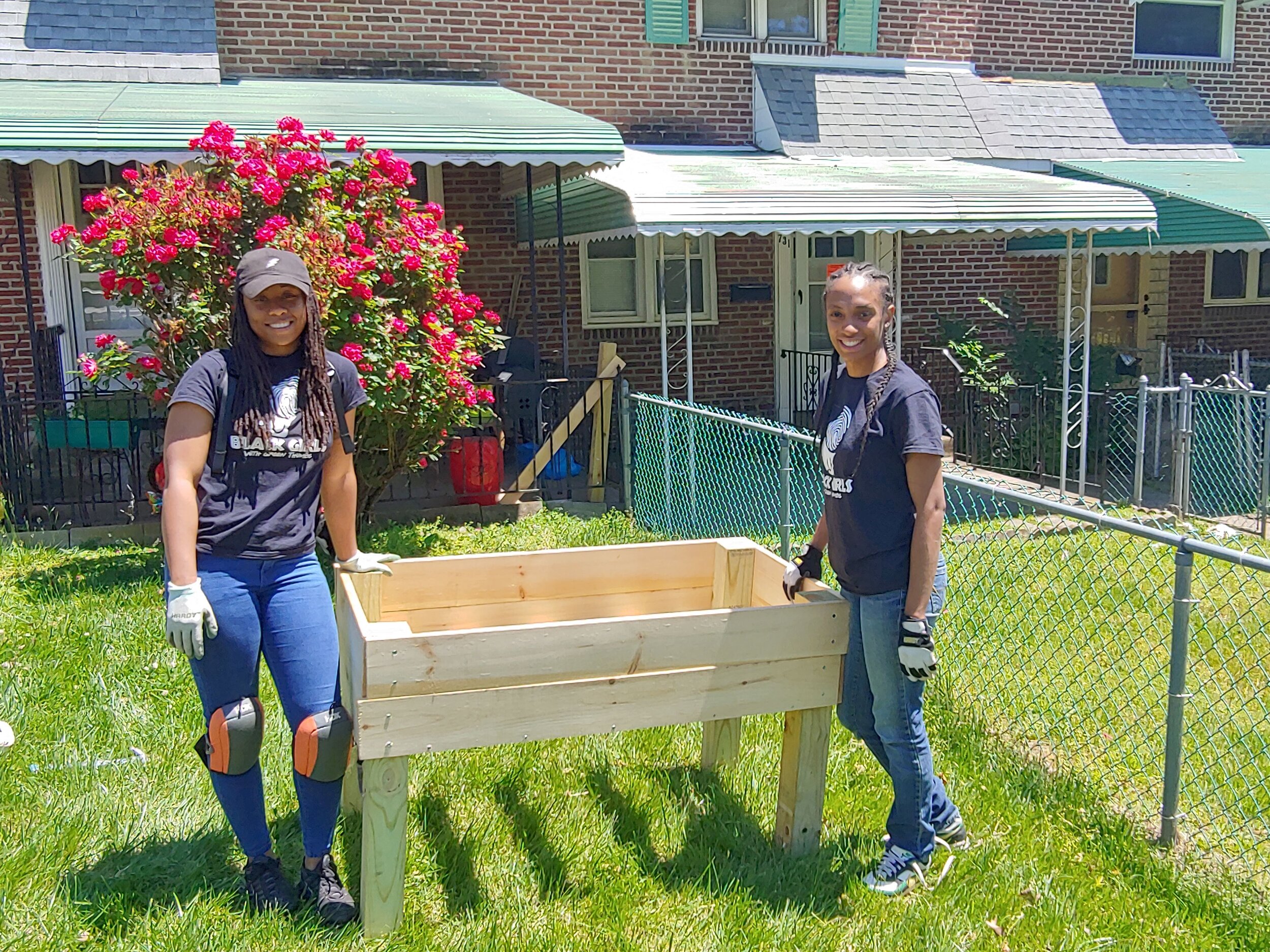
Danielle Lewis, a former school secretary in Yeadon, was just starting to garden in the spring of 2019 when she heard about BGWGT through social media.
“I thought it was something I should check out because I always wanted to really learn how to grow plants and food,” she says.
Lewis grew up with lots of indoor plants. Her grandmother gave her plants to take care of while she was in college, but she struggled to keep them alive.
“Since then, I think I’ve always wanted to redeem myself in a way,” she says.
Lewis participated in BGWGT’s “Green Thumbs in Your Library” workshop at West Oak Lane Library.
She said the classes were on diverse topics in gardening and health and they were preparing to start a community garden when COVID-19 happened.
“I really loved how hands-on the classes were,” says Lewis.
She particularly appreciated the making and testing of different foods and drinks with herbs.
“It was really set up in such a thoughtful … practical way, and it really gave me the confidence to come home and try dishes on my own,” she says.
It also gave her ideas for ways to include her children, ages 7 and 3, in the kitchen. Now, cooking at Lewis’ home is a family affair.
Lewis’ daughter also took classes at the Darby Free Library where BGWGT hosted a free workshop for children. She loved it.
“They are phenomenal,” says Lewis, “and their impact is being felt in a major way.”
“In many black and Brown communities we’re not learning to grow food,” says Karen Peterson, executive director of Women of Harmony, Inc., a nonprofit organization that supports homeless women and their children as they transition in and out of shelters.
She started the program in 2000, after experiencing a period of homelessness as a single mother with a one-month-old.
In Delaware County, there are at any given time 600 homeless families. Women and children make up 60 percent of this population.
Peterson heard about BGWGT and thought they should give presentations at all of the shelters.
“It was flooring to see how involved and interested the families were in gardening,” says Peterson, “and in what seems so simple as growing seeds and planting something from scratch.”
Peterson brings life skills to the shelters, from trauma-informed care to special education—but says she’s never received the kind of response that BGWGT got from teaching the women and children how to grow and prepare food.
“These moms were so into it,” says Peterson. “It blew my mind.”
She says that seeing Black women running an organization they had founded was also enlivening for the women in the shelter.
When Peterson was homeless 20 years ago, there was more funding. Now, she says, if a mother moves into a shelter with a young child, that shelter will likely be home to the family for several years.
“So, if they can plant a garden, it gives a sense of hope,” says Peterson. “When you are homeless and feel powerless, [growing food] allows these families to have some power back.”
Reconnecting to the Earth is reconnecting to something you can give yourself, she says.
She adds that even the act of planting a seed can act as a helpful metaphor for homeless women and children.
“Planting seeds, being patient, adding water, adding sun,” she says. It offers hope for a day.
“You plant a seed and there’s just a little life,” she says. “Then two weeks later there’s a little more life.”
Shelters don’t often have access to fresh food, because it’s much easier to store and serve processed foods. Processed foods are cheaper, easier to transport and easier to prepare, says Peterson.
But BGWGT taught the women that you don’t need an acre of land to have a garden. You can grow it on your windowsill or in a plastic box.
“There’s a lot of trauma associated with homelessness,” says Peterson. “I’ve never met a woman who planned to be homeless. [BGWGT] brought joy, peace and a sense of self-care.”
In 2019, Black Girls With Green Thumbs received their first grant from the Network of the National Library of Medicine (NNLM). That grant was renewed again for 2020.
They are also sponsored by The Race and Green Tree School & Services, a nonprofit that provides education, therapeutic and clinical support to children with autism spectrum disorder and severe emotional disability.
“My child and I actually attend their family support group meetings,” says Coleman of Green Tree, “and I just developed a really good relationship with [the] administration and some of the staff there.” She is the mother of a 9-year-old with autism who has benefited from these programs and felt she wanted to give back to some of the organizations that helped her child.
Along with the Woman in Harmony, Inc. and library workshops, BGWGT has done workshops with Autism Cares Foundation and Variety, the Children’s Charity, a program for children in inner-city areas with special needs.
The sponsors and support BGWGT has received happened more easily than Coleman and Tabb expected.
“It’s an abundance of riches,” says Tabb. “We feel so blessed that people are seeing our vision and that we are able to share our passion and our knowledge with our people.”
With the NNLM grant, the organization is going to build a community garden at the Darby Free Library. They will be working with the librarian and leadership team to create a sustainability plan for the garden.
“It really requires community buy-in and work from the organization and from the community that lives in the area for the gardens to thrive,” says Tabb.
Their mission is as much about wellness as it is about gardening.
“Even when we’re doing seed saving classes, or we’re talking about how to specifically plant or build a garden box, we’re always talking about self-care,” says Coleman.
Coleman says she and Tabb know how therapeutic gardening can be for many people.
“During classes and activities we like to remind participants that gardening allows us all to be nurturers,” says Coleman. “We let participants know that it doesn’t matter what age we are, what sex we are or what our socioeconomic state is, when it comes to gardening we are all nurturers.”
The benefits are manifold. Working in nature releases endorphins, and can help with depression and anxiety, notes Coleman.
“Being amongst plants and flowers reminds us to live in the present moment,” she adds.
She says that they’ve received much feedback from participants of all ages about how gardening and the classes have positively affected their mental health. One alum from the West Oak Lane Library classes reached out to them to let them know that her family has been making healthier food choices thanks to the classes.
“All of our work is really personal,” says Tabb. “It’s an extension of our lived experiences, and people tend to be very interested in working with us because they just see the genuineness in the work that we’re doing.”


